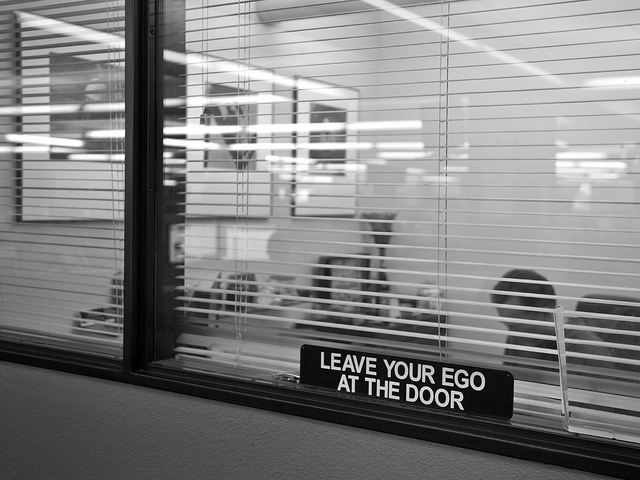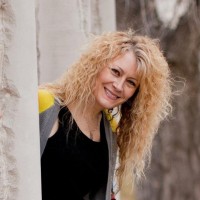I have spent the last three months of my life up to my neck in elephants—on a virtual safari.
I elected to put myself through summer school with elephant journal’s “Elephant Academy.” I knew it would be a stretch for me, but I was ready to lengthen my mental limbs and expand the borders of my brain. This venture would max out my stacked schedule, but I dove in with glee.
One of our tasks was to manage elephant journal’s social media pages. At first, I felt aloof and awkward in posting articles, quotes and pictures, but soon I felt a connection to the people who would comment and nod in virtual affirmation.
I felt a kinship with them, like they were my people.
I also felt a bit like “the man behind the curtain” because no one knew who was actually behind the scenes, wildly planning posts for hours every evening. I had acquired a hefty, unearned following overnight. Feeling a bit like an impostor, I enjoyed my incognito superpower, able to reach millions of people with the gems I’d found.
We had writing assignments as well. I wrote what was supposed to be a light-hearted article that left some readers thinking I was completely ignorant and/or armed with ill intent toward people wrestling with transgender concerns. I was wading in the shallow end of the pool, not really examining the depth of despair that some people endure, but it was my own small way of defending people I couldn’t completely identify with (not having walked in those shoes). In a way, I was asking the world to play nice. I chose to focus on one thing we all have in common to bring people to a middle ground: a name. I was probably trying to take the heat off a hot topic and aim it elsewhere (you know, like a rodeo clown).
It worked. People hated me.
It turns out, that’s not an uncommon (nor unfortunate) occurrence in the arena of communication. It can open doors to better understanding for those who will step on through.
One of our final tasks was editing. We were able to edit actual submissions. When you are editing someone else’s work, you observe the big picture from the perimeter. You see what’s not important. You ask for more clarity. You try to evoke what you think the author is trying to say and you ask them to crystallize it just a little bit more. This led to to one of the most important things I’ve learned over the last few months: the importance of editing my life.
When reading through other people’s thoughts, sometimes it’s hard to find the point. This was my writing style at first— a kind of mental meandering. The editors would kindly respond with some nicely worded “what’s your point?” and dang if I didn’t really have one, or had too many to choose from.
“Ain’t nobody got time for that.” ~ Sweet Brown
When we edit, what we’re doing is removing the noise. We are sharpening the point of our words, burning off the dross and hopefully leaving behind something with some sheen.
Prior to sending our words off into the world, we must “self-edit.” This is where we line up all our mini-points, figure out our main point and then slash the trash. I usually prefer to recycle, saving the phrases that I love but must leave out, for another day.
So, what’s our point? Why are we here? That’s the purpose of editing?
We edit to bring clarity.
There are quite a few things that we can strike from the manuscript of our lives, we just have to stand back with an editor’s stance and try to really see what needs to go. We have been told to let go of that which does not serve us, and I think that’s good advice when it pertains to things and habits. Sometimes however, we have to let go of certain people in our lives—not because we are not served by them, but because our hearts are not honored by them. It’s an unfortunate stroke of the pen, to be sure, but one that must be undertaken if we are to devote our energy to the things and people that really matter.
So, may we edit our lives and discover and live our purpose with crystal clear precision.
My thanks and love to elephant journal for allowing me to travel along on this expedition.
Author: Dawn Raymond
Apprentice Editor: Dawn Raymond
Photo: Robert Couse-Baker via Flickr












Read 0 comments and reply